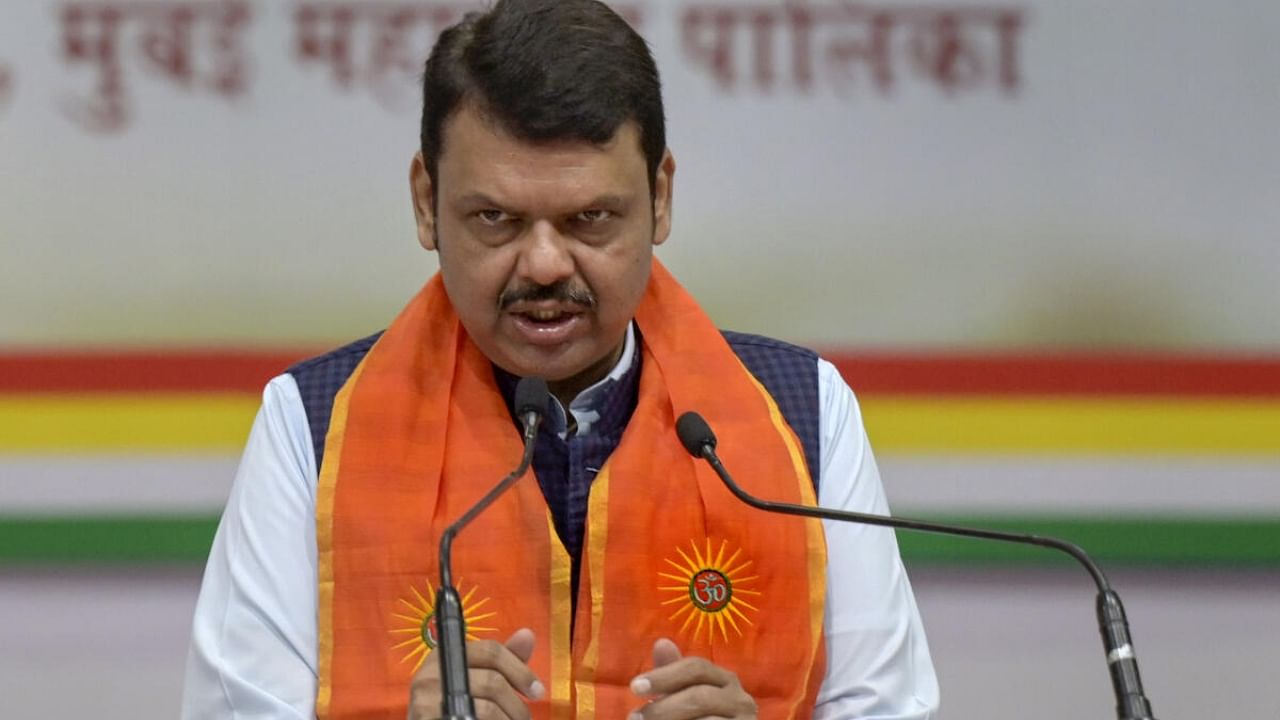
The Bharatiya Janata Party (BJP) is fundamentally a Hindi-belt political party with a topping of Gujarat in the west and Assam in the North-East. After the defeat in Karnataka, it has no holdings in the south, and confronts many shades of grey in Maharashtra, the state that sends the second-highest number of MPs to Parliament.
It is, therefore, relevant to ask whether the recent developments in Maharashtra show the glass as being half full or half empty for the BJP. Certainly, the party is in power in the cash- and resource-rich state even though it is not in a position to claim the post of Chief Minister. Yet, being in government puts it in a position to implement its agendas be they religious, social, or financial.
The BJP may pat itself on the back for an ability to use financial heft and central agencies to break opposing parties. Yet, the party has done so not by increasing its own strength, but conversely seems to have accepted that there is not much scope left for it to expand on its own steam in Maharashtra. It has instead chosen to get ‘saline drips’ from breakaway groups of two traditional regional parties — the Shiv Sena and the Nationalist Congress Party (NCP).
That is a comedown for a party that once encroached on the bases of its former allies such as the undivided Shiv Sena and Nitish Kumar’s Janata Dal (United). Does its current standing in Maharashtra, therefore, reveal an eroding mass appeal since 2014?
No doubt the BJP has fine-tuned the skill of engineering defections to the point where a revolving door is ready for the post of Chief Minister, currently held by Eknath Shinde, who led the first act in operation ‘break and make’ when he brought down the Maha Vikas Aghadi (MVA) government led by Uddhav Thackeray just over a year ago. But since there is a possibility that 16 Shiv Sena MLAs including Shinde could be disqualified, it could pave the way for the latest defector, NCP’s Ajit Pawar to become Chief Minister.
The Speaker, who would make these weighty decisions, is Rahul Narwekar, currently with the BJP. But he has been in the Shiv Sena and the NCP in the past, and his own journey exemplifies the limitless possibilities of political opportunism. There are legal challenges in the Supreme Court and directives of the Election Commission of India that complicate the decision on disqualification, but the strategy would be influenced by the ‘wishes’ of the national high command of the BJP.
Would the BJP leadership use the disqualification excuse to now discard Shinde? He has possibly not been able to cut into public support for the original Shiv Sena (outside of Thane district) as internal surveys are reportedly indicating. Pawar is waiting anxiously to realise his dream of being Chief Minister — and would in terms of mass clout, be the stronger among defectors. He is a Maratha and has with him some leaders who win on their own strength regardless of party — all of whom are facing enforcement directorate (ED) and/or criminal cases, and the risk of attachment of properties.
Political bigamy and the ED thus offer the BJP a multiplicity of choices. But what of the party’s own state leadership? As Deputy Chief Minister Devendra Fadnavis is a diminished figure whose role appears to be a facilitator of defections. He was never an individual with a mass base, but someone chosen after the 2014 Modi wave. He is a Brahmin which gives him a very small caste vote in a state that also has a tradition of anti-Brahman movements.
Beyond Fadnavis, who draws his authority from a faction in Nagpur (the Rashtriya Swayamsevak Sangh (RSS) headquarters), and New Delhi, other leaders in the state BJP who have nurtured constituencies are unhappy with the entry of outsiders. What would have been an entire cake now has to be divided three ways and the best posts, ministries, and eventually seats must be given to those from outside the RSS/BJP fraternity.
The design is being determined by the BJP’s national leadership, which apparently recognises the infirmities of the state unit, and is therefore striking at the Opposition. It also reportedly wishes to deny as far as possible Opposition forces access to the financial resources of the state.
But this can also be counter-productive in generating sympathy for Thackeray, as has reportedly been happening, and now for Sharad Pawar, whose NCP was recently split. The other narrative on the ground that harms the BJP is that investments are being shifted to Gujarat.
The BJP’s answer to all of this is simple: push the Modi image and try to subsume all narratives and identities in a Hindu vs Muslim framework.
(Saba Naqvi is a journalist and author.)
Disclaimer: The views expressed above are the author's own. They do not necessarily reflect the views of DH.